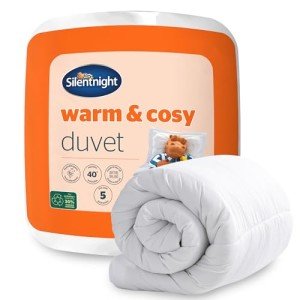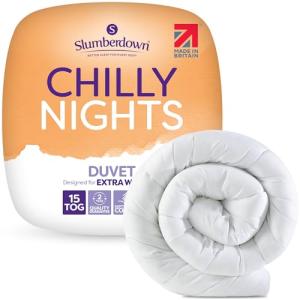As the days grow shorter and temperatures plunge, the importance of a cozy, warm, and allergy-friendly bedding solution becomes apparent. For many, winter signifies a shift towards comfort, and a double duvet can provide that perfect layer of warmth. However, if you're someone prone to allergies, selecting the right duvet can be a challenging endeavor. In this article, we will explore the benefits of cozy anti-allergy double duvets, discuss materials, maintenance, and answer frequently asked questions.
Why Choose an Anti-Allergy Duvet?
An anti-allergy duvet is specifically designed to minimize the risk of allergic reactions caused by dust mites, mold, and other allergens that are often prevalent in traditional bedding materials. When it comes to winter, having the right bedding can make a significant difference in how well you sleep and your overall health. Here are some key reasons to opt for an anti-allergy duvet:
- Health Benefits: Reduced exposure to allergens can lead to better sleep quality and overall health.
- Comfort and Warmth: Anti-allergy duvets are designed to provide warmth while still allowing for breathability.
- Easy Maintenance: Many anti-allergy duvets are machine washable, making them easy to clean and care for.
Features to Look for in an Anti-Allergy Double Duvet
When selecting an anti-allergy double duvet for winter, several features should be considered to ensure optimal comfort and performance:
- Material: Duvets can be made from various materials, including synthetic, cotton, and silk. Each has its own benefits and drawbacks.
- Allergen Protection: Look for duvets that come with a certified anti-allergy claim.
- Fill Power: This indicates the warmth and loftiness of the duvet. Higher fill power generally means better insulation.
- Weight: Consider whether you prefer a lightweight or heavier duvet; both have their advantages.
- Size: Ensure that the duvet will fit your double bed properly, preferably with some overhang for comfort.
Table 1: Comparison of Duvet Materials
| Material | Benefits | Drawbacks |
|---|---|---|
| Synthetic | Hypoallergenic, easy to wash, budget-friendly | Can trap heat, less breathable |
| Cotton | Natural, breathable, hypoallergenic | May not provide enough warmth for winter |
| Silk | Luxurious feel, excellent temperature regulation | Expensive, requires special care |
The Best Fabrics for Cozy Duvets
When it comes to warmth and comfort during winter, the fabric of the duvet plays a crucial role. The following options are some of the best fabrics worth considering for a cozy anti-allergy double duvet:
- Microfiber: This synthetic material resembles down and provides excellent insulation. Microfiber is also hypoallergenic and resistant to mold.
- Cotton: While cotton is natural and breathable, opting for a high thread count can boost warmth and comfort.
- Bamboo: Known for its sustainability, bamboo fabric is soft, breathable, and has natural antimicrobial properties.
Guidelines for Care and Maintenance
Proper care and maintenance can enhance the longevity of your anti-allergy duvet. Here are some guidelines to follow:
- Regular Washing: Wash your duvet every 3 to 6 months to eliminate dust mites and allergens.
- Use a Protective Cover: A quilt cover or duvet protector adds an additional layer of protection against allergens.
- Air It Out: Frequently air out the duvet outdoors to remove moisture and odors.
- Storage: Store your duvet in a cool, dry place when not in use, preferably in a breathable bag.
FAQs About Cozy Anti-Allergy Double Duvets
1. Are anti-allergy duvets suitable for sensitive skin?
Yes, many anti-allergy duvets are made from hypoallergenic materials, making them suitable for individuals with sensitive skin.
2. How often should I wash my duvet?
It is recommended to wash your duvet every 3 to 6 months, but always check the care label for specific instructions.
3. Can I use an anti-allergy duvet during all seasons?
Most anti-allergy duvets are versatile and can be used year-round, depending on the weight and filling.
4. What’s the best way to store a duvet?
Store your duvet in a cool, dry place in a breathable bag, avoiding plastic bags which can trap moisture.
5. Are there different warmth levels in anti-allergy duvets?
Yes, anti-allergy duvets come in various warmth levels, typically categorized as lightweight, medium, and heavyweight.
Investing in a cozy anti-allergy double duvet for winter can significantly enhance your sleeping experience during the colder months. By considering factors such as materials, maintenance, and personal comfort preferences, individuals can select a duvet that not only keeps them warm but also protects them from allergens.
With the right care and attention to detail, a quality anti-allergy duvet can be a long-lasting addition to any bedroom—a true comfort that ensures serene and restful nights, free from allergies. As winter approaches, now is the perfect time to make bedding choices that prioritize both comfort and health, ensuring that you curl up in warmth and peace all season long.
Whether you lean toward natural fibers or synthetic options, selecting the right duvet ensures that this winter, you stay cozy, warm, and allergen-free.






